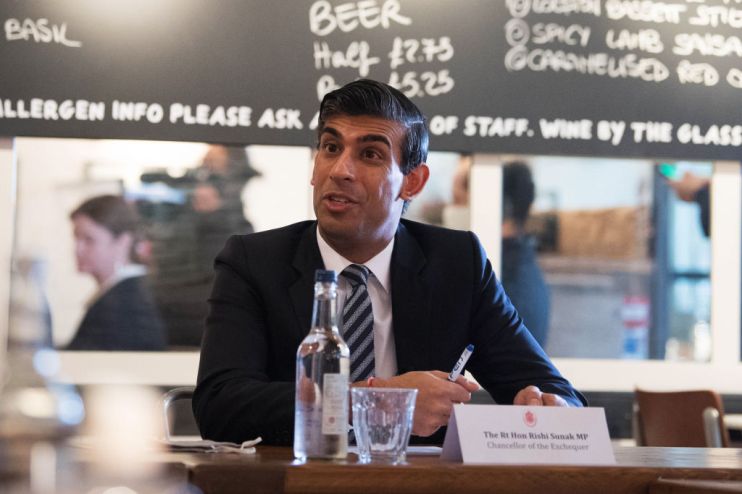Rishi Sunak defends Eat Out To Help Out but rules out repeat this summer

The chancellor has defended last year’s Eat Out To Help Out scheme despite concerns it caused a spike in coronavirus cases, though he ruled out reintroducing it after lockdown restrictions are lifted.
In evidence to MPs yesterday, Rishi Sunak that there was so much “pent-up” demand for meals and pints out among consumers that there was no need to revive the meal subsidy scheme in the coming months.
“I think we probably now have higher confidence that there will be consumption-led recovery even without intervention than we did before,” he said. “Consumer confidence is at different levels and there’s actually a lot of pent-up desire.”
The Treasury spent £849m subsidising around 160m meals last August, but attracted criticism from critics who claimed it may have fuelled a spike in coronavirus infections.
Research from Warwick University published in October suggested that Eat Out To Help Out may have been responsible for between 8 and 17 per cent of all new detected clusters of coronavirus emerging during August and September in the UK.
But Sunak refuted the accusations this morning as he defended the Eat Out To Help Out scheme.
Speaking on Politico’s Westminster Insider podcast, he said: “Every other Western European country also had a surge of cases when you got into the autumn, none of them seem to have done the same thing, so what’s the explanation for that?”
“Over 2m people work in that industry, they’re disproportionately younger, they’re women, they’re lower paid, and caring about their jobs and their futures for me is a matter of social justice,” he added.
The chancellor said the hospitality industry was crucial to the British economy “not just because of… the size of the people or employees, but it is an industry that gives life and vitality to all our villages and towns centres and high streets”.
Restaurants and pubs will be allowed to reopen for outdoor service from 12 April at the earliest under the Prime Minister’s roadmap for leaving lockdown.
Indoor service will potentially be able to resume five weeks later on 17 May, with all restrictions set to be removed by 21 June.
Sunak told Politico the government had scrutinised the potential economic impacts of extending lockdown later into the year when drawing up the roadmap for lifting restrictions.
“I wouldn’t be doing my job properly if I didn’t give the Prime Minister what I thought the impact that a decision would have on the economy in the same way that Gavin [Williamson] would be right to tell the Prime Minister the impact any lockdowns would have on children’s educational attainment and what that means for their future,” he said.
“And even when we’re considering the health impacts, it’s not just the coronavirus health impacts that we should be cognisant of. We should also think about the non-coronavirus health impacts, whether that’s mental health… or indeed, ill health chronic health outcomes that come from unemployment,” Sunak added.